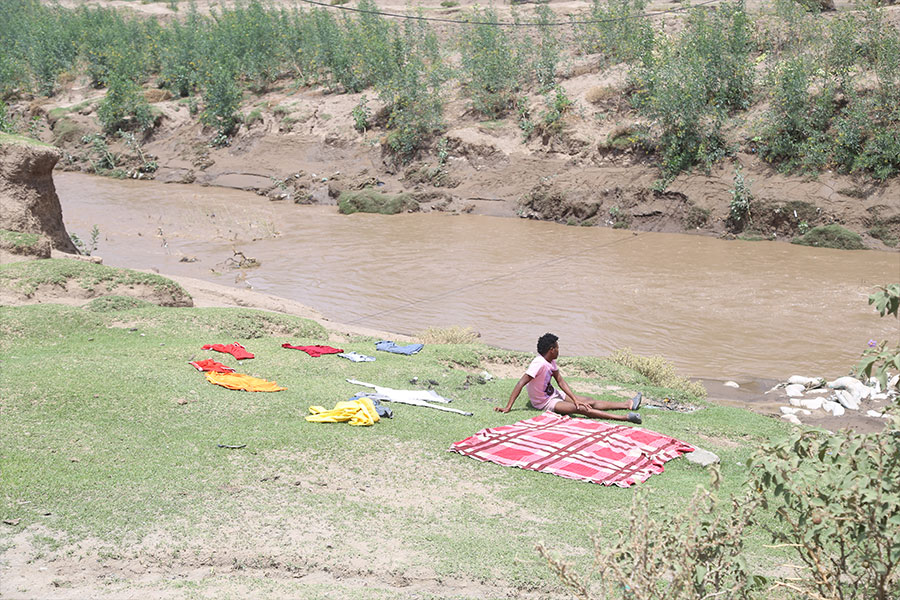
Commentaries | Jun 25,2022
Jan 13 , 2024
By Carolyn Kissane
I am not fond of meetings. They usually turn out to be a complete waste of time, despite their intended purpose of being highly productive. Rather than serving as platforms for organisational communication and development, the gatherings become emblematic of an unending cycle of futility, leaving participants questioning the value of their time and the accomplishment of meaningful outcomes.
Meetings are usually plagued by a cryptic agenda or the absence of one altogether. The pervasive lack of clear objectives and tangible outcomes makes way for cyclical rituals of unproductivity. Information is circulated aimlessly, decisions are deferred indefinitely, and valuable hours are squandered on repetitive updates and lengthy speeches.
A well-crafted agenda serves as a roadmap, guiding the conversation toward productive outcomes. However, employees are presented with vague directives that allow the discussion to wander, veering off into tangents and irrelevant anecdotes, ultimately contributing to a sense of frustration and a loss of focus.
There is always that one colleague who takes centre stage, indulging in a self-focused speech while slides flash by in a chaotic dream and sentences loop back on themselves like a broken record. By the time they pause for a breath, the initial point has been overshadowed by an overwhelming deluge of information.
Then the Q&A session begins. Although it was intended to clarify and refine ideas, frequently descends into existential rabbit holes, leaving everyone more perplexed than before. At last, decision-making, the supposed climax of these gatherings, becomes a polite game of passing responsibility, with participants reluctant to make concrete choices.
The outcome? Scheduling more meetings—a testament to the cyclic nature of unproductivity.
A striking resemblance is shared in training over the perpetuation of tedium and ineffectiveness. It is usually a one-man show, starring either a monotonous presenter or a PowerPoint deck with more animation than active participants.
Information overload, whether in the form of convoluted discussions or lengthy training programs, leaves employees mentally drained. The unrelenting pace of these sessions, cramming hours of information into the minds of participants results in low retention rates, with acquired knowledge fading long before it finds real-world utility.
The lack of personalisation in training programs a one-size-fits-all approach, fails to engage diverse learners. This results in some feeling overwhelmed while others are left bored and disengaged.
Employee engagement, the holy grail of modern HR, remains elusive. Forced participation in rote learning sessions, whether under fluorescent lights or through mandatory training exercises, rarely ignites the flames of passion and dedication. Instead, these become obligatory box-ticking exercises, devoid of genuine enthusiasm or a sense of purpose.
For many organisations, the opportunity cost of training can be significant, particularly in industries where time directly translates to money. Every minute spent in a sterile conference room becomes a minute not dedicated to revenue-generating activities or seizing valuable opportunities. This sacrifice is palpable in fast-paced environments, where agility and immediacy are crucial to success.
Recognising the opportunity cost of time spent in meetings and training sessions prompts a reevaluation of their necessity and structure. Embracing methods, where information is disseminated efficiently and decision-making is swift, can redefine the role of these corporate rituals.
The key lies in acknowledging the pitfalls of traditional approaches and embracing a culture of efficiency and purpose. Breaking free from the cycle requires clear objectives, well-defined agendas, and a commitment to inclusive decision-making. Only then can meetings and training sessions transform from time-wasting rituals and become catalysts for genuine progress and employee empowerment.
PUBLISHED ON
Jan 13,2024 [ VOL
24 , NO
1237]


Commentaries | Jun 25,2022

Viewpoints | Nov 02,2024

Commentaries | Apr 22,2023

Commentaries | Jun 22,2024

View From Arada | Mar 30,2024

Radar | Jul 09,2022

Fortune News | Apr 17,2020

Fortune News | Oct 20,2024

Radar | Oct 31,2020

Editorial | Sep 16,2023

Photo Gallery | 178629 Views | May 06,2019

Photo Gallery | 168822 Views | Apr 26,2019

Photo Gallery | 159656 Views | Oct 06,2021

My Opinion | 137090 Views | Aug 14,2021
Commentaries | Oct 25,2025

Dec 22 , 2024 . By TIZITA SHEWAFERAW
Charged with transforming colossal state-owned enterprises into modern and competitiv...

Aug 18 , 2024 . By AKSAH ITALO
Although predictable Yonas Zerihun's job in the ride-hailing service is not immune to...

Jul 28 , 2024 . By TIZITA SHEWAFERAW
Unhabitual, perhaps too many, Samuel Gebreyohannes, 38, used to occasionally enjoy a couple of beers at breakfast. However, he recently swit...

Jul 13 , 2024 . By AKSAH ITALO
Investors who rely on tractors, trucks, and field vehicles for commuting, transporting commodities, and f...

Oct 25 , 2025
The regulatory machinery is on overdrive. In only two years, no fewer than 35 new pro...

Oct 18 , 2025
The political establishment, notably the ruling party and its top brass, has become p...

Oct 11 , 2025
Ladislas Farago, a roving Associated Press (AP) correspondent, arrived in Ethiopia in...

Oct 4 , 2025
Eyob Tekalegn (PhD) had been in the Governor's chair for only weeks when, on Septembe...

Oct 25 , 2025 . By YITBAREK GETACHEW
Officials of the Addis Abeba's Education Bureau have embarked on an ambitious experim...

Oct 26 , 2025 . By YITBAREK GETACHEW
The federal government is making a landmark shift in its investment incentive regime...

Oct 29 , 2025 . By NAHOM AYELE
The National Bank of Ethiopia (NBE) is preparing to issue a directive that will funda...

Oct 26 , 2025 . By SURAFEL MULUGETA
A community of booksellers shadowing the Ethiopian National Theatre has been jolted b...